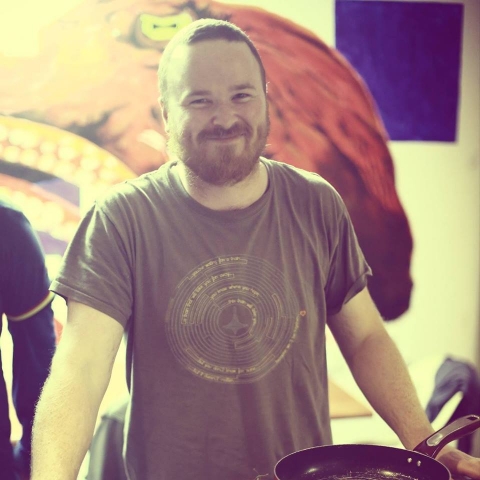The hotel industry is fighting the same battles with OTAs that hostels are constantly going through; trying to increase direct bookings, bring down the cost of commissions, and reduce our reliance on OTAs.
Here are some strategy suggestions from Skift on how to get the most benefit for your business when you deal with OTAs.
This Is How Hotels Could Win the Direct Booking Wars
While it’s still rather early to call the battle just yet, it’s never too early to start preparing for the many battles that lie ahead in these direct booking wars. Getting more direct bookings is just a start for hotels. If they really want to win the war itself, they’ll have to do much more than that to keep the customers they have, and acquire more in the process.
The suggestions in the artice include:
Be the ultimate negotiator
When Marriott and Hilton renegotiated their contracts, they got the OTAs to agree to lower fees and eliminated last room availability, also allowing them to offer lower rates to their loyalty members.
Most individual hostels don’t have much negotiating power on their own. Joining networks and regional associations helps us to lend strength through collaboration. When Hostelworld introduced their heavily altered contract in 2013, the hostel community came together in an unprecedented display of solidarity. As a result, many of the most egregious clauses were revised or removed.
Booking .com’s reduction of the Rate Parity restriction last year, and Hostelworld’s complete elimination of it, has also allowed hostels to offer different rates through different channels.
Collective negotiation is possible, and it is the only way that we as a community of hostel owners will be able to negotiate with OTAs to ensure that our partnerships remain advantageous. Regional networks and associations are critical for our industry. They provide advantages locally, and when collaborating with other groups, they provide support for all hostel industry-wide.
Get bigger
”Smaller hotels may also look to merge with other partners to increase their scale and independents will be more willing to join a soft-brand collection.”
Soft-brand collections like Hilton’s Curio Collection, Marriott’s Autograph Collection, or Hyatt’s Unbound Collection give independent hotels access to bigger brands’ own distribution channels without having to fly any branded flags and still retaining independent status. In recent years, the major brands have unveiled a number of these collections in the hopes of bringing these independent properties into their fold and increasing their global reach.
…
AccorHotels’ Fastbooking enables smaller independent hotel companies to advertise their properties on AccorHotel .com for lower commission rates and access to customer data from Accor. AccorHotels CEO Sebastien Bazin told Skift that since acquiring Fastbooking in 2015, it has been “immensely successful.”
“For me, it has a huge merit as being the first marketplace being curated by one hotelier, on behalf of hoteliers, and we’re going to be enlarging probably to 12,000 hotels, from 4,000 today, of which two thirds are going to be independent,” he said.
This is an interesting idea. Hostel chains, networks, associations, or other collaborations with strong marketing power could sell beds in other hostels in addition to their own with lower commissions that what the OTAs charge. RyanAir want to start doing something similar, selling flights on other airlines through their own website.
Independent hostels could gain additional exposure, pay lower commissions, and benefit from the negotiation power of a larger group. The hostel or organization providing the marketing power can collect commissions from competitors or from areas where they don’t have a hostel, and they also benefit from negating on behalf of a larger group.
Market heavily
One of the biggest differences between the OTAs and hotels is how much they spend annually on their marketing budgets. For example, Priceline spent an estimated $2.8 billion on marketing last year, while Marriott’s estimated annual marketing budget is about $100 million.
Neither hostels nor hotels have the kind of money to spend on marketing that the big OTAs are spending. One argument on behalf of OTAs is that giving 15-25% in booking commissions is cheaper and easier than investing in your own marketing efforts. This may be true. But it also puts you entirely at the mercy of third party vendors who do not have your best interests in mind, and who will be just as happy to sell your competitor’s beds rather than yours for an even higher commission.
But if you are willing to invest some of the money that you would already spend on commissions into your own marketing efforts you may see encouraging returns when those booking shift to your own website. The value of being in control of your business and reducing dependence on a third party is worth the money that you reroute into your own marketing.
Hilton and Marriott have both funded marketing campaigns aimed directly at consumers, appealing them to “stop clicking around” and telling them “it pays to book direct.” Hilton, by most estimates, has spent the most of the major hotel companies with its Stop Clicking Around campaign, launched in February. The multi-million dollar campaign’s debut coincided with the launch of its discounted member loyalty rates.
“This is the year that they have all stood up and said, ‘We’re going to spend millions to educate consumers and tell them direct booking is better,” said Triptease’s Osmond.
Both of these campaigns have been extremely successful. Hilton’s loyalty program enrollment increased by 80% so that people could take advantage of their direct booking deals.
Of course you probably don’t have enough to invest in a massive campaign like these, but you could take advantage of their efforts.
He suggested independents and smaller hotels take advantage of what the big brands are doing and “piggy back on the consumer messaging out there.” He said, “Provide a simple message on your sites, telling your customers you prefer they book direct. Don’t steal Hilton’s ad campaign but put the same message front and center. Consumers intrinsically know they want a direct relationship and they want to cut out the middle man — you just need to be clear to show them the best deal is direct.”
A facebook ad that includes that message could go a long way too.
Member rates
It’s not enough to simply offer a better price, even if that’s ultimately what most consumers are looking for when they are looking to book a room. Hotels also need to consider offering additional ancillary services or rewards to sweeten those direct booking rates. Some hotels do so by offering perks like free Wi-Fi, as Hilton and Marriott do, or by offering small rewards or perks like Wyndham and Choice do.
Osmond said he’s even heard of some hotels that offer a welcome foot massage, or a free scuba lesson for guests who book direct. “Those additional services, in addition to the different rates, make it that much more enticing for guests to want to book direct,” he said.
Great ideas! Offering lower prices is certainly not the only way to make a direct booking more appealing and more valuable to a potential customer. Incidentally, a hostel that offers foot or shoulder massages to soothe a backpacker’s road weary body will not only get the direct booking, but probably a lot of social media hype when they brag to their travel buddies.
The added value doesn’t have to be extravagant. Even a free welcome drink for direct bookings will be appreciated. Although you might want to extend the offer to guests who booked through other channels too if they’re around, just so they don’t feel left out and so you can show your lavish generosity. :)
Focus on conversions
Intent Media’s Harris said it’s wise for brands to invest in some conversion improvement tools such as Voyat, Triptease, and Stay Wanderful. “What they are doing is leveraging the playing field between OTAs, metasearch, and hoteliers themselves.”
The article suggests that metasearch sites like Trivago have been shown to be good conversion tools for hotels. This places rates from different channels together for comparison to select the best deal.
Another way to focus on conversions is employing sound revenue management. “You need to make sure the price is optimally calibrated for maximum conversion,” said Bhandari.
Contrary to intuition, the point of dynamic pricing for revenue management is not to lower your price when demand is low, but rather to raise it as demand increases. You need to maintain a reasonable base rate, and avoid getting involved in price wars!
Pay attention to search
To maximize revenue per search, Harris said hotels need to start thinking more like OTAs and metasearch platforms and “help consumers understand the options, but also help in the discovery process as they figure out what options are available and what they want to buy.”
It wasn’t mentioned in the article, but tools like Schema.org can help Google identify and categorize your website to stand out in search results and capture the attention of potential guests.
Make Your Sites Easier to Use and Book
Once a potential guest makes it to your site, it’s crucial for the site itself — whether mobile or desktop — to offer an easy-to-use, engaging user experience.
…
…hotels can also learn from how airlines sell optional products, or ancillaries, and he said they should also be focusing on making the mobile booking experience better. Additionally, he said sites need to have “better content, whether it’s visual or better quality photography, video content, or social media content.”
Your website is the authoritative source of information for your hostel, and it should provide more for your guests than the OTAs do. For example, photos and videos, maps and clear directions, information about your services, information about your area, deals and special offers, and certainly an easy-to-use booking engine for instant confirmed bookings.
Let Them Shop Around — On Your Site
Another way hotels can improve the online shopping experience? Become more of your own multi-brand marketplace and, better yet, why not advertise your competitors’ and/or OTA’s prices on your site as well?
This transparency can help to convince potential guests that they are making the right choice by booking your hostel, as well as demonstrating the value of booking on your own site rather than an OTA.
Don’t Forget About the Guest Experience
One area where hotels have a major advantage over the OTAs is controlling the actual guest experience during their stay, and it’s arguably one of the most effective ways to engender loyalty among customers.
“The hotel is the best expert on their own property,” said Osmond. “You can never find anyone at the OTA who has knowledge of that property to the degree that the hotel does, and having live chat on your site gives guests access to your knowledge and ability to serve them and engage them in the sales conversation.”
A small hostel probably can’t dedicate a staff member for answering instant messages from potential guests. If the receptionists are stationed in front of the computer anyway, however, a short instant message to answer a question may not impede the work they already do, and it may go a long way to secure that booking.
The article also mentions that many aps are available that help accommodation providers and their guests communicate in-house. Starwood Hotels even started providing portable wi-fi hotspots (for rent) to ensure that their guests can always be connected, in the hotel or out in the city. Pretty smart! That would go over well with backpackers who don’t necessarily want to buy a new SIM card or pay for roaming data service every time they change countries. If these ore offered free or at a reduced rental price for guests who book direct, then the value soars even higher.
There was also a really interesting quote from a statement that Expedia CEO Dara Khosrowshahi made to hoteliers at a conference.
“You guys all criticize me for how much I charge you for guests to come to your hotel. I think you’re looking at it wrong. Look at us as the cheapest source of referrals that you could imagine. If they come through me, you pay me once, and if they come back to me again and again, shame on you. You should make them a loyal customer.”
That is 100% correct! It’s up to us to educate our guests on the best way to book a hostel. Most of us are not running branded hostel chains, but we ARE a worldwide community of independent hostels. We all stand to benefit when guests consistently receive better value and a better experience from booking directly everywhere they go.
So, Who Ultimately Wins?
The truth is that this war is far from over, and it’ll be a war that could, foreseeably, last indefinitely. And hotels that are in it to win it, know that.
…
They also know that as much as they may, or may not, view the OTAs as an adversary, they know that, should we enter another economic recession like we did in 2008, the OTAs will be invaluable to their ability to stay in business.
The whole point of the battle for direct bookings is NOT to eliminate the OTAs and run them out of business. They are valuable tools that hostel operators can use for our benefit, as we see fit. They are also valuable tools for travelers, and some guests will continue to use them no matter what we do. Our objective in this struggle is to encourage direct bookings so that we reduce our reliance on those OTAs in order to remain in control of our businesses.
Here are some other discussions on how to promote direct bookings and reduce our reliance on OTAs:
Encourage Direct Bookings with this Poster
New International Campaign: Book Direct and Save
7 Questions for More Direct Bookings
Suggestions from HeBS Direct for reducing dependence on OTAs



Log in to join discussion